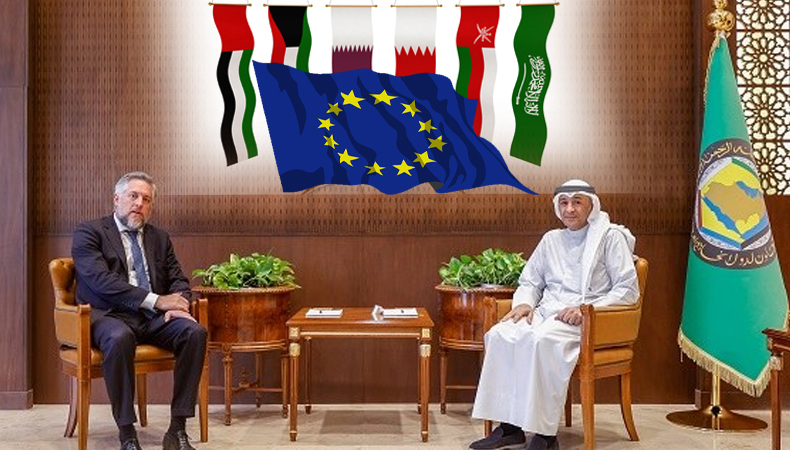Updates on strategic cooperation discussed by head of GCC and EU envoy

Jasem Albudaiwi, the secretary general of the GCC, and Patrick Simonnet, the ambassador of the EU to Saudi Arabia, met on Monday to go over the latest developments in their cooperative efforts.
The two met in Riyadh and spoke about the state of the implementation of the strategic cooperation between the EU and the GCC nations under the Joint Partnership Program for the years 2022–2027.
The initiative was established to improve the GCC and EU’s political participation, security, and political discussion.
Dr. Abdulaziz Al-Awaisheq, the GCC assistant secretary for political affairs and negotiations, also attended the meeting.
According to Simonnet, the purpose of their discussion today was to go over the preparations for and upcoming EU-GCC activities scheduled for the second half of 2023.
Also, we discussed regional affairs and highlighted the strategic cooperation that unites us, he continued.
“We periodically meet with our partners to review recent developments and our bilateral relations. This meeting was no different.”
Read | Rare car bomb explosion rocks affluent suburb of Syria’s capital Damascus
According to a lengthy history of significant turning points in our interactions, the GCC “is, and will remain, a trusted partner for the EU,” he told Arab News.
Simonnet met with Dr. Nayef Falah Al-Hajraf, a former GCC secretary general, in January to talk about common interests and the significance of improving ties between the GCC and the EU.
In order to promote ongoing discussions on economic relations, science, energy, climate change, and research, the EU and the GCC countries signed a cooperation agreement in 1989.
The accord also aims to strengthen the GCC’s role in promoting peace and stability in the region and diversify economic development.
Since beginning a dialogue in 1989, the GCC and the EU have been advancing their strategic partnership over time. During a conference in Brussels in May 2022, the EU presented the joint communication to advance strategic alliances with the GCC.
By the facilitation of yearly discourse meetings on multilateral themes like the green transition and humanitarian action, the partnership intends to further improve EU-GCC interaction.




